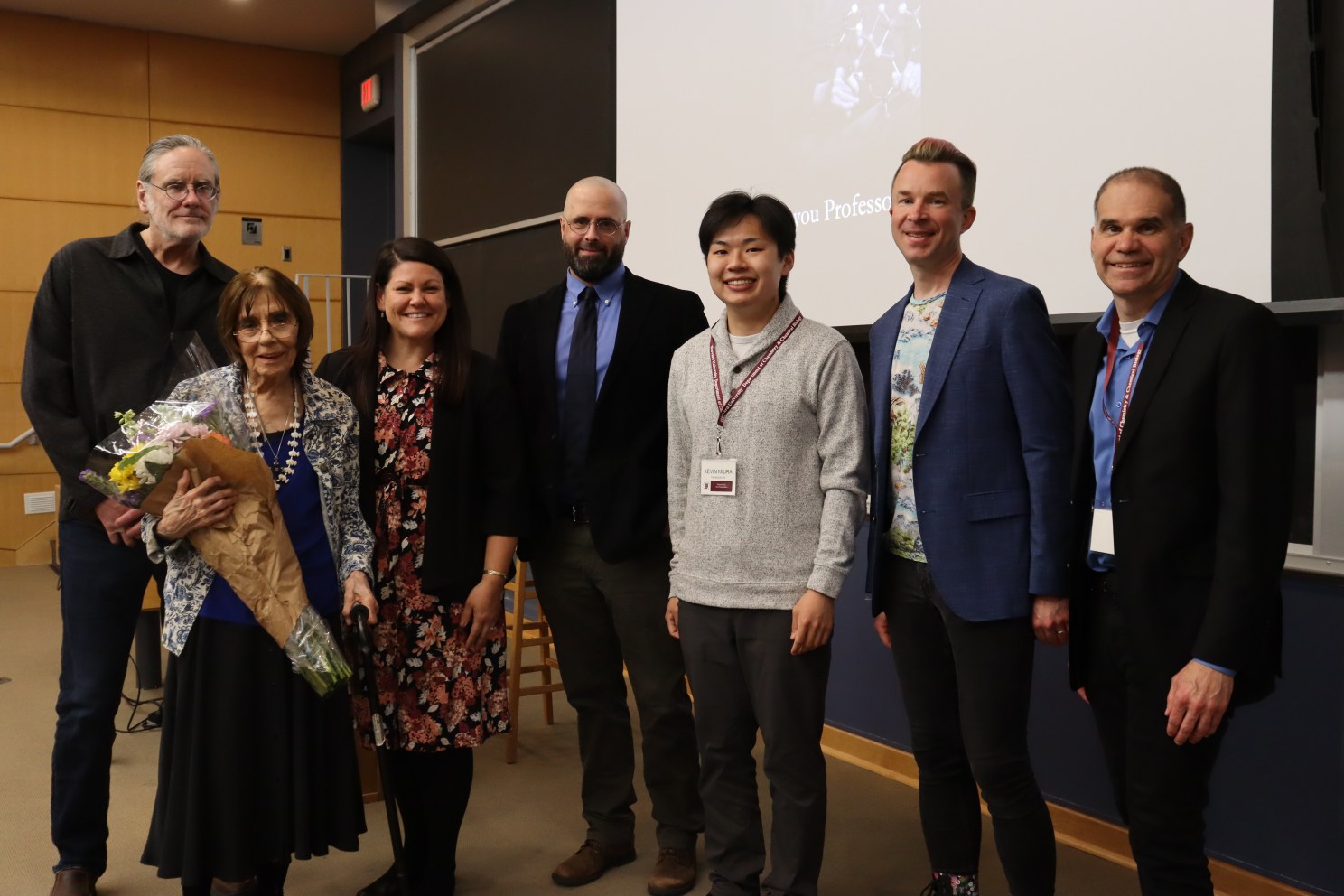CCB honors undergraduate research and celebrates Richard ‘Dick’ Holm

Christian Holm (from left), Florence Holm, Deana Reardon, Theodore Betley, Kevin Miura, Logan McCarty, and Gregg Tucci.
Photo by Yahya Chaudhry
Harvard’s Department of Chemistry and Chemical Biology hosted its third annual undergraduate research symposium, showcasing its undergraduates’ state-of-the-art research projects and honoring the historic contributions of CCB professor and renowned inorganic chemist who passed away in 2021, Richard “Dick” H. Holm.
The symposium, which took place on May 6, was attended by approximately 100 people, including faculty members, graduate students, undergraduates, and staff members from across the University. The event featured a keynote address, a memorial address about Holm, oral presentations, and poster presentations that covered a diverse range of topics including advanced research practices across chemistry’s research areas.
“We’re proud to highlight the dedication and ingenuity of our undergraduate researchers, who are tackling ambitious questions across the chemical sciences,” said Deana Reardon, executive director of CCB. “In a time when scientific research and funding face increasing uncertainty, this event reminds us of the critical importance of investing in young scientists. Their work not only advances discovery — it represents the future of innovation and our collective ability to address the world’s most pressing challenges.”
The keynote address was delivered by Logan McCarty, associate dean for Science Undergraduate Education and lecturer on chemistry, chemical biology, and physics, who discussed the role of artificial intelligence and failure in solving hard problems.
“Most genuinely hard problems are solved by ideas that come from outside of its discipline, so disciplinary focus is limiting progress,” McCarty said. “For example, protein folding was solved by artificial intelligence and insights from biology.”
McCarty also noted that undergraduate researchers would benefit from embracing failure and entertaining their novel ideas.
“Undergraduate science education should focus on unsolved problems where we have lots of effort, little to no progress, and where disciplinary expertise may be a hinderance,” McCarty said. “We need ideas from naïve undergraduate researchers who are not steeped in a discipline.”
As a tribute to Holm’s life and achievements, Theodore Betley, Erving Professor of Chemistry, recited Holm’s Memorial Minute and recounted his personal experiences with Holm, who had encouraged his junior colleagues.
“Dick was tireless in his enthusiasm to talk about all of his loves from chemistry to 1940s Detroit Tigers baseball, and he is deeply, deeply missed,” Betley said. “The level of sophistication that he would approach science is still the north star for legions of chemists who came after him.”
Kevin Miura, a Mason Lab member, kicked off the undergraduate oral presentations with a talk about Holm’s groundbreaking inorganic chemistry and his impactful career as a professor and mentor.
The event also provided an opportunity for students to connect with their peers and alumni, and to learn about the research being conducted in other areas of the department. In addition, the presentations allowed students to practice communicating about their research subjects and processes.
The symposium has been a priority for CCB which collected abstracts for both sessions and produced the event.
In total, dozens of undergraduate students participated in the oral presentations and the poster presentations. The top presenters received flowers, trophies, and gift certificates.




